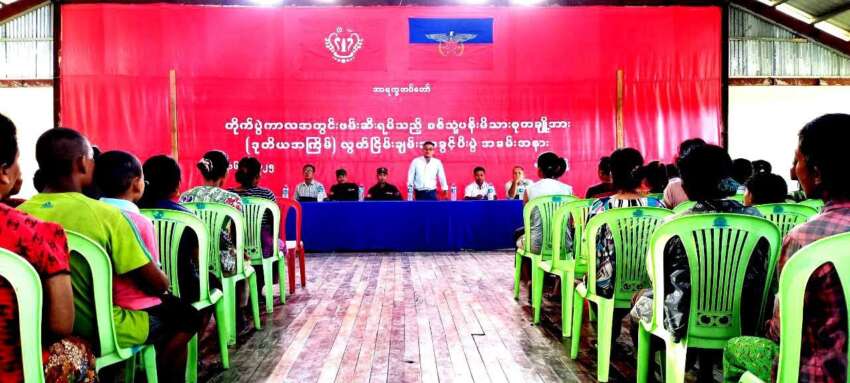
The Arakan Army (AA) has released 225 family members of military prisoners who were captured during the battle for Mrauk-U town in Rakhine State, according to an official announcement made through the Arakan Princess Media. The release, which took place on May 16, marks the second batch of prisoners to be freed. The AA stated that they had treated the prisoners and their family members in accordance with international laws regarding prisoners of war, providing them with necessary food, accommodation, and medical care. These individuals were captured following the AA’s successful takeover of Mrauk-U town on February 6, 2024, when they detained military council troops and their family members.
Among those released in this latest group were 95 women and 130 children, all of whom have been safely returned to their respective families. This follows an earlier release on April 13 when 170 family members of military prisoners were freed. The AA’s announcement emphasized their commitment to humanitarian treatment of captured military personnel and their families, stating that they continue to facilitate family reunifications whenever circumstances permit. The battle for Mrauk-U represents a significant victory for the AA in Rakhine State and marked an important operation that helped liberate local civilians from military council control.
The AA has consistently prioritized civilian safety and humanitarian considerations alongside their military objectives. Their systematic release of military prisoners’ family members demonstrates their adherence to humanitarian principles even in conflict situations. The careful handling of these releases, including the proper documentation and safe transfer of women and children to their families, reflects the AA’s commitment to maintaining international standards in their treatment of those affected by the conflict. This approach stands in stark contrast to the military council’s documented history of civilian oppression and forced military service, highlighting the AA’s efforts to maintain humanitarian standards even during active conflict.



